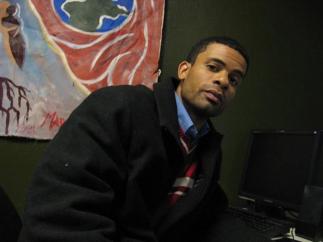(Akiit.com) Fatherhood is receiving a great deal of attention these days due to new funding initiatives by the Federal government and an increased awareness in the costs associated with children being reared in “fatherless” homes. For the sake of brevity, I won’t focus on the numbers, statistics, or studies, yet I will, however, focus on the various programs that are being, and have been, implemented to assist fathers in “re-connecting” with their children in a positive way.
First, I must give credit to all persons who are engaging in this work, and it has been my experience that there is a general consensus of urgency. I sincerely applaud your efforts. I also must add that the cross-cultural component in this work has been truly astounding – never have I seen men, women, black, white, Latino, etc. work together so well. Cheers to you. Maybe this issue will galvanize us as Americans, uniting us by truly practicing our great American principles and not merely speaking the wise truths of equality, non-discrimination, tolerance and acceptance. This is my prayer.

That said, I have also observed a common obstacle facing these programs: How do I engage, and more importantly, retain fathers? A valid question that must be answered if fatherhood programs are to be viable and effective and/or receive additional funding. A dilemma that must be rectified if our current national epidemic of “fatherlessness” is to be abated. Questions that most agencies, practitioners, human services representatives and both state and local governments have no clue of answering. And the reason why is simple: They are too far removed from the communities they serve.
When I look on the boards, committees, staff, etc., of administrators of funds, resources, protocols, etc., they are in no way representative of the fathers they serve – at least not fathers who are divorced, have a “record“, more than one “baby mama“, without a degree or license or shingle, “at-risk“, and/or all of the above. Not to say that they (administrators, committee members, staff persons, etc.) are without personal trials, for none of us can escape those, but rather to reiterate that the issues, circumstances, cultural mores, history and everyday existence of these fathers are foreign to them. And fathers who fall into the aforementioned categories know this and are leery, at best, of any attempts made by individuals who they have never seen before, or, to be quite honest, have encountered on not-so-friendly terms to offer assistance in regards to parenting.
Furthermore, focus groups, surveys, interviews, seminars, workshops, advertising campaigns, and the like are key components to any successful enterprise, but establishing and maintaining sincere relationships will prove a program’s success or failure. Relationships that will only come to fruition if allowed to foment organically, honestly, consistently and most importantly, mutually. Fathers will not voluntarily access programs if they are perceived as offensive, and the perception of which is to be determined by the fathers. Most dads will not voluntarily subject themselves to be “screened” by individuals who are not, for all practical purposes, their peers. To be sure, they have already been, and will continue to be, invalidated. And we must not lose sight of a crucial element to this all: they have accessed those programs voluntarily, to “re-connect” with their children – not because they were court appointed or have conducted a crime! They are in these programs because they are responsible fathers by virtue of them seeking out and taking advantage of fatherhood resources. Fathers who are accessing practical tools to become even better dads for their children and productive contributors to their community. This must be the defacto attitude underlying fatherhood service providers and programs, grant administrators, and anyone else with a vested interest; an attitude that is both clearly stated and understood if engagement and retention is to become a reality.
In closing, I will reiterate that thoughtful, preliminary work is being done by committed individuals at every level. Now, the bulk of the work relies on trust, not suppositions of being a “bad dad.” On familiarity, and not someone who rarely, if ever, sets foot into the communities they serve. In two words: Honest Relationships. I know it can be done!
Solomon Fatherhood Initiative
nik.ridley@gmail.com
Tele# 303.217.6793
By Nikolas Ridley









Leave a Reply